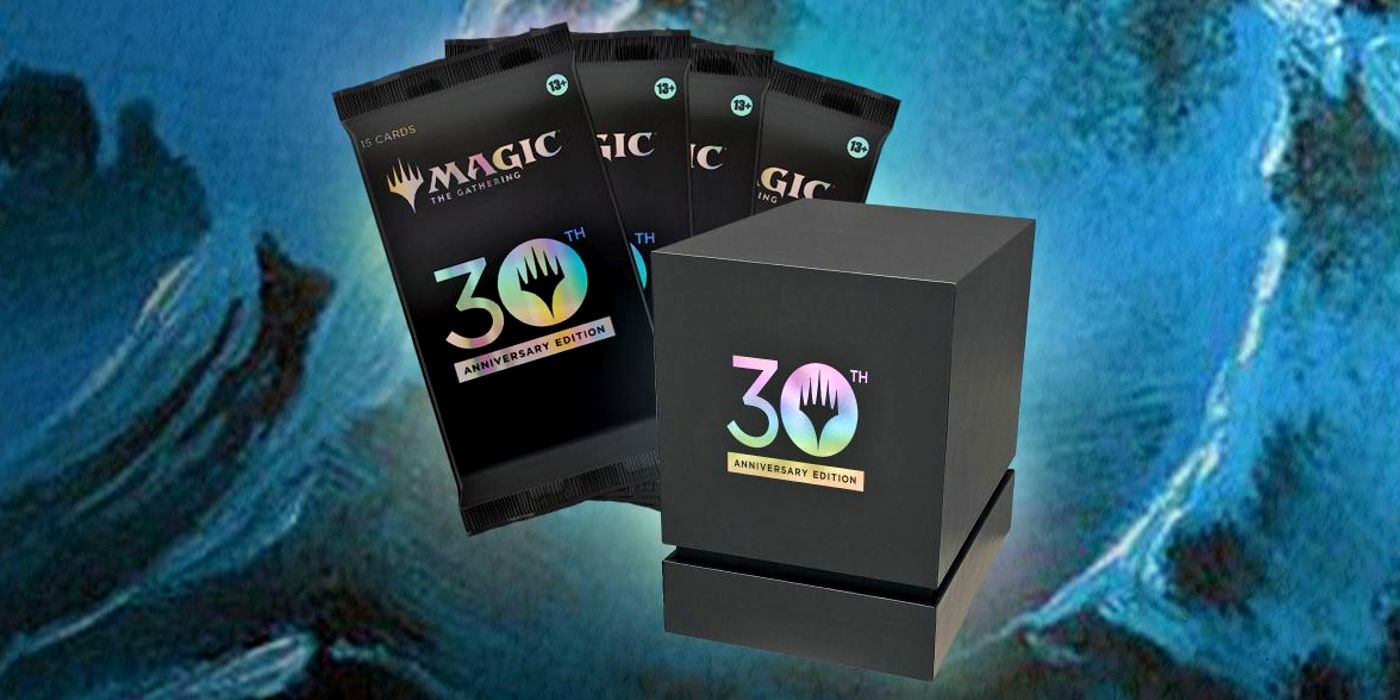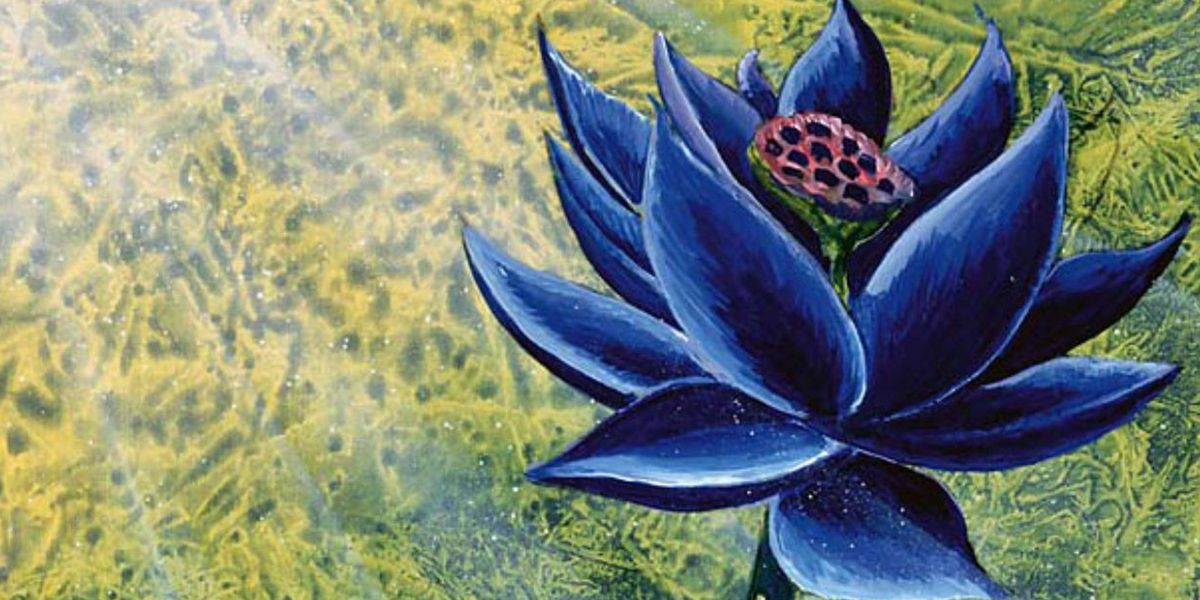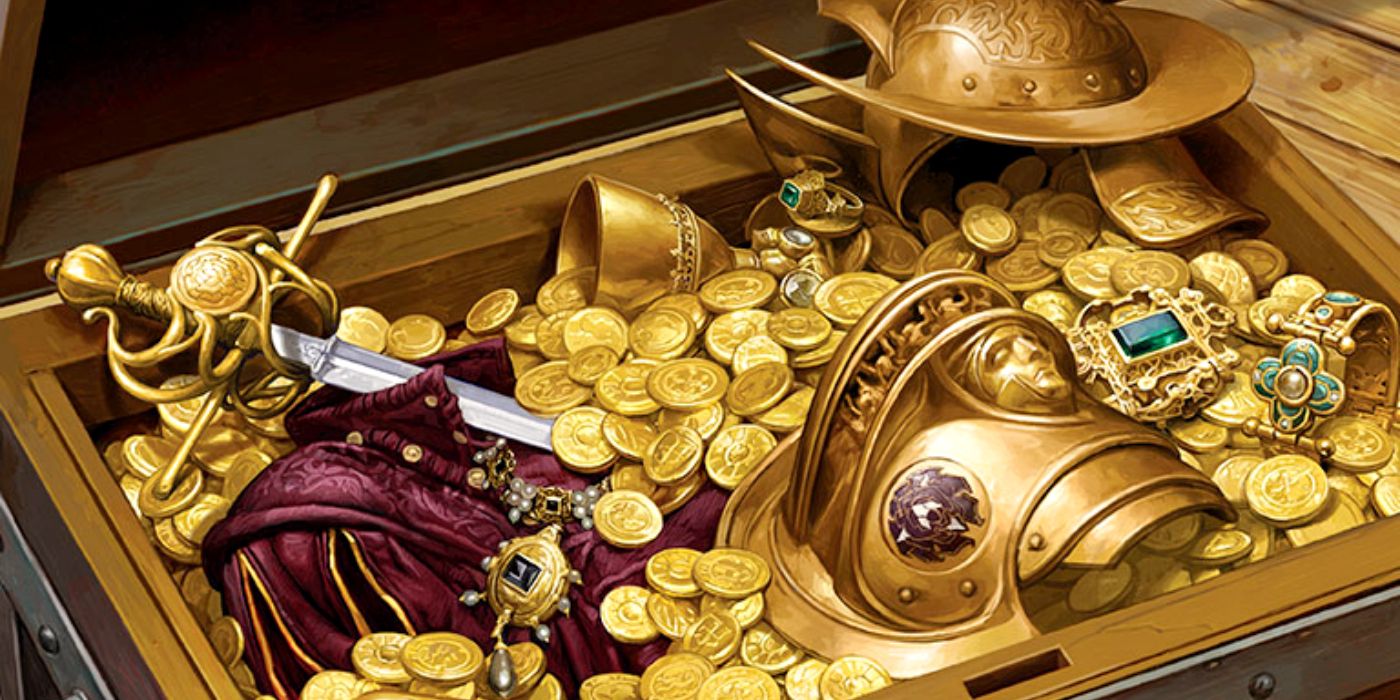It's rare for a franchise to reach 30 years and still have constant releases, but the trading card game Magic: The Gathering hit that landmark this year. The game is celebrating with the 30th Anniversary Edition, a special release that includes many of the game's oldest and most powerful cards. However, the product's release and reception have been controversial points for fans of the long-lasting card game.
While the 30th Anniversary Edition includes many old cards from Magic's original sets, they are not considered "real" Magic cards when it comes to play. Rather than using the standard and wildly recognized card back, the 30th Anniversary Edition features the infamous Black Lotus and the name of the set, making these not legally playable cards for competitive or official play. Additionally, Wizards of the Coast made the decision to release the product in sets of four packs of 15 cards each, costing $999. These choices are what have been fueling much of the controversy that surrounds the 30th Anniversary Edition release.
M:TG's Reserved List Is Already Controversial
The main reason that many of Magic's most famous and powerful cards haven't been reprinted is due to a promised list of cards that will never be reprinted in paper Magic, called the Reserved List. The Reserved List was established in 1996 --and has seen occasional updates since -- with the goal of preserving the value of old Magic cards. It doesn't prevent the cards from being released in online formats, which is why the Power Nine were able to make their way into Magic: The Gathering Arena, but it does mean that many famous cards are simply too expensive or rare for most players to get their hands on.
This controversy around the Reserved List has seen a spike in attention with the 30th Anniversary Edition. By making the cards not legal in tournament play, many players see this as WotC stepping around the rules established by the Reserved List. With so many players not wanting to spend thousands of dollars on a Black Lotus, having new cards printed that are explicitly not allowed in play is frustrating for fans. WotC's stated aim of giving players the feeling of opening classic cards is also seen as tone-deaf, due to the incredibly high cost of the packs.
Fans See M:TG 30th Anniversary Edition's Price Tag as Exploitative
Most Magic packs are sold for around $4, while some high-valued sets can cost around $10 per pack. With the 30th Anniversary Edition costing players almost $250 per pack of 15 cards -- several of which will be useless and ignored commons or basic lands -- has been seen by many as exploitative. Controversy around the financial practices of WotC in regard to Magic has been a major talking point of 2022, so much so that the overproduction of cards has led to stock values for parent company Hasbro dropping. The 30th Anniversary Edition's incredibly high cost for what are effectively proxies (fake cards created to stand in for real cards) has been largely viewed as negative, with many associating it with the predatory monetization of gacha games.
Magic's 30th Anniversary was released on Nov. 28, with the sale concluding only an hour after launch. While that may sound like a success, many fans noted that the phrasing of the company's announcement is vague about the set's success, with the official Magic: The Gathering Twitter account saying "the product is unavailable for purchase," rather than sold out. With the negative reception to the product, many suspect that it did not sell well and was taken down to imply it had sold out. Whether the set was a success or not, the 30th Anniversary release is not Magic's first encounter with controversy and will likely not be the last. What remains to be seen is if WotC will change its approach by addressing the concerns many players have about the future of the game.



